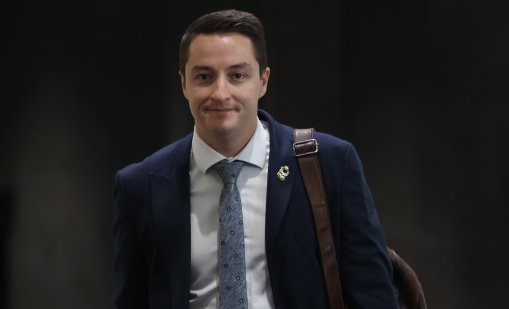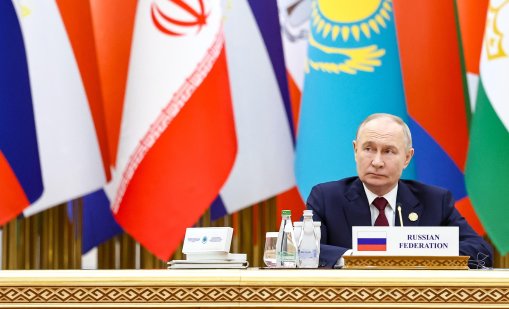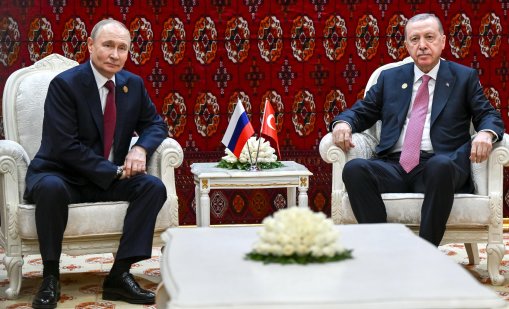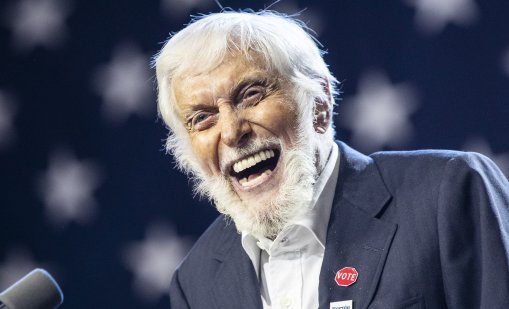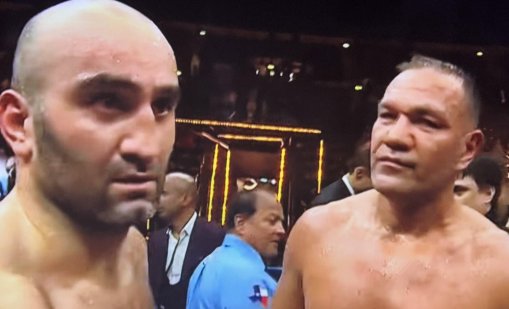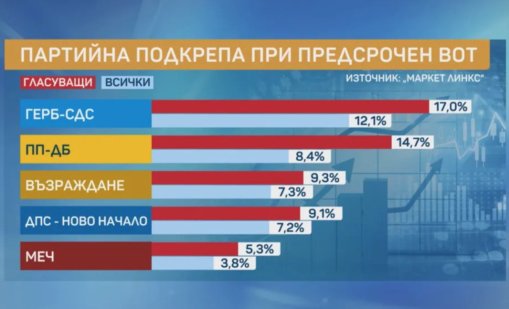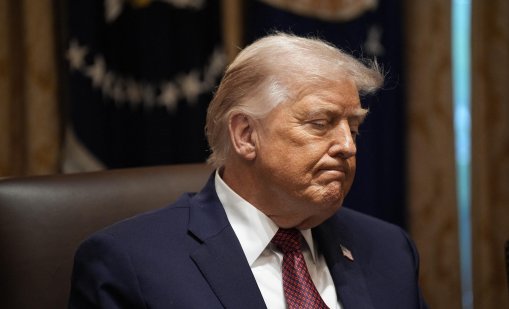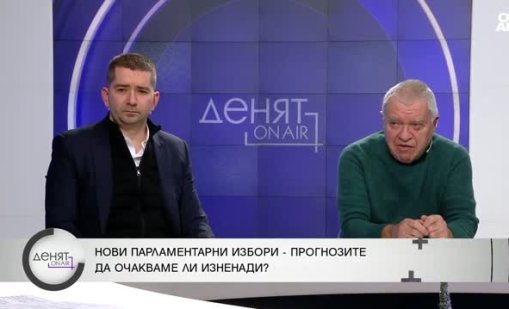Вътрешният министър Цветан Цветанов обяви, че една от главните му цели е комфортна работна среда на служителите в МВР.
"В момента тече процедура за един милион и 900 хиляди лева за подобряване условията на работа. Знаем, че има много проблеми, правим всичко възможно да ги разрешаваме, и то със солидарността, която получаваме от ЕС. Това е една от възможностите за допълнителен финансов ресурс, всичко, което се стареем да правим, е да бъде прозрачно и да има социален диалог със синдикатите", заяви в Благоевград МВР шефът.
Той отчете, че за първите 6 месеца МВР е усвоило 15 милиона лева от еврофондовете.
Цветанов е уверен, че въпреки икономическата криза, министреството му е успяло да финализира строителството на сградите на няколко районни полицейски управления, сградата на ГДБОП, "Криминална полиция", до месец предстои да бъде открита и новата сграда на "Охранителна полиция".
"Това означава, че работните места стават много добри", каза той. Предстои да бъдат купени и 42 нови противопожарни автомобила, похвали се още той.
По думите му МВР отчита добри резултати в борбата срещу компютърните престъпления и детската порнография.
Цветанов потвърди пред журналистите, че 5000 български полицаи се обучават електронно на шенгенско законодателство, за да могат да отреагират по бъдещи казуси, свързани с членството ни в зоната.
Това се случи Dnes, за важното през деня ни последвайте и в Google News Showcase.

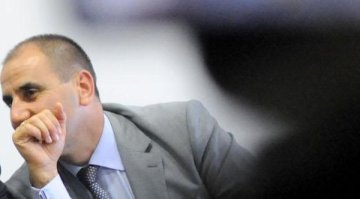

 Baidu запълва празнината, която Nvidia остави на пазара на AI чипове в Китай
Baidu запълва празнината, която Nvidia остави на пазара на AI чипове в Китай  Cartier е новият Rolex за поколението Z благодарение на Тейлър Суифт
Cartier е новият Rolex за поколението Z благодарение на Тейлър Суифт  Парижкото споразумение за климата навърши 10 години, но мисията е далеч от изпълнена
Парижкото споразумение за климата навърши 10 години, но мисията е далеч от изпълнена 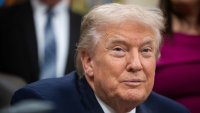 САЩ вдигат санкциите върху беларуския поташ
САЩ вдигат санкциите върху беларуския поташ  Кадър на деня за 13 декември
Кадър на деня за 13 декември  Защо изкуственият интелект няма да измести, а ще трансформира приложенията?
Защо изкуственият интелект няма да измести, а ще трансформира приложенията? 
 Беларус освободи 123 затворници, САЩ отменят част от санкциите
Беларус освободи 123 затворници, САЩ отменят част от санкциите  Малките модулни ядрени реактори - приложими ли са в София
Малките модулни ядрени реактори - приложими ли са в София  Рецепта от тефтера на баба: Карфиол с кашкавал на фурна
Рецепта от тефтера на баба: Карфиол с кашкавал на фурна  Името решава кой може да наеме апартамент в Германия
Името решава кой може да наеме апартамент в Германия  Кметът на София: Проблемът с боклука в "Люлин" е почти решен
Кметът на София: Проблемът с боклука в "Люлин" е почти решен  Доналд Тръмп премахва ограниченията за ключов износ на Беларус
Доналд Тръмп премахва ограниченията за ключов износ на Беларус 
 НА ЖИВО: ЦСКА - Локомотив София (Съставите)
НА ЖИВО: ЦСКА - Локомотив София (Съставите)  В Индия са сериозно притеснени заради Лео Меси
В Индия са сериозно притеснени заради Лео Меси  Звезда напуска Реал Мадрид, ясно е в кой колос отива
Звезда напуска Реал Мадрид, ясно е в кой колос отива  Легендарен треньор ще възражда шампион в Евролигата
Легендарен треньор ще възражда шампион в Евролигата  Ботев Пловдив не сбърка срещу Спартак Варна за Купата
Ботев Пловдив не сбърка срещу Спартак Варна за Купата  Барселона, Реал Мадрид и Байерн Мюнхен в битка за новата звезда на футбола
Барселона, Реал Мадрид и Байерн Мюнхен в битка за новата звезда на футбола 
 Седмична нумерологична прогноза за 15 – 21 декември
Седмична нумерологична прогноза за 15 – 21 декември  Дневен хороскоп за 14 декември, неделя
Дневен хороскоп за 14 декември, неделя  Изберете ангелско число и вижте посланието от коледния ангел
Изберете ангелско число и вижте посланието от коледния ангел  Любовен хороскоп за 15 – 21 декември
Любовен хороскоп за 15 – 21 декември  Как да изберем рокля според типа фигура
Как да изберем рокля според типа фигура  TASH SULTANA – за първи път в България на 11 август 2026
TASH SULTANA – за първи път в България на 11 август 2026 
 продава, Къща, 261 m2 София, Надежда 4, 396660.24 EUR
продава, Къща, 261 m2 София, Надежда 4, 396660.24 EUR  продава, Парцел, 879 m2 Бургас област, с.Кошарица, 66000 EUR
продава, Парцел, 879 m2 Бургас област, с.Кошарица, 66000 EUR  продава, Къща, 39 m2 Бургас област, с.Кошарица, 66000 EUR
продава, Къща, 39 m2 Бургас област, с.Кошарица, 66000 EUR  продава, Парцел, 537 m2 София, Клисура (с.), 20000 EUR
продава, Парцел, 537 m2 София, Клисура (с.), 20000 EUR  продава, Къща, 255 m2 София област, с.Лесново, 280000 EUR
продава, Къща, 255 m2 София област, с.Лесново, 280000 EUR  продава, Парцел, 2000 m2 София, Драгалевци, 600000 EUR
продава, Парцел, 2000 m2 София, Драгалевци, 600000 EUR 
 Липсата на приет бюджет не застрашава влизането на България в еврозоната
Липсата на приет бюджет не застрашава влизането на България в еврозоната  Коледата ще е по-скъпа за румънцити, а подаръците - по-скромни
Коледата ще е по-скъпа за румънцити, а подаръците - по-скромни  След приемането на еврото: Плащането с карта или ПОС‑терминал е най-надеждно
След приемането на еврото: Плащането с карта или ПОС‑терминал е най-надеждно  Техническият университет във Варна връчи дипломи на абсолвентите от Випуск 2025
Техническият университет във Варна връчи дипломи на абсолвентите от Випуск 2025  Презапасяване за идването на еврото - граждани изкупуват големите супермаркети
Презапасяване за идването на еврото - граждани изкупуват големите супермаркети 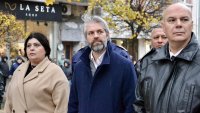 Адела Качаунова: Протестите във Варна бяха сред първите сигнали за нарастващото недоволство
Адела Качаунова: Протестите във Варна бяха сред първите сигнали за нарастващото недоволство 
 Лунната почва може да съдържа следи от земната атмосфера
Лунната почва може да съдържа следи от земната атмосфера  Антитела, проектирани от изкуствен интелект, ще бъдат тествани на хора
Антитела, проектирани от изкуствен интелект, ще бъдат тествани на хора  Признаци за бъдеща катастрофа в Антарктида
Признаци за бъдеща катастрофа в Антарктида  Разкриха влиянието на Марс върху климата на Земята
Разкриха влиянието на Марс върху климата на Земята  НАСА да изпрати хора на Марс възможно най-скоро
НАСА да изпрати хора на Марс възможно най-скоро  Нов вид миниатюрна жаба е открит в Южна Бразилия
Нов вид миниатюрна жаба е открит в Южна Бразилия 

